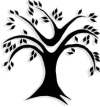|
God's love for us is the question, and our teshuvah ŌĆō our turning of the heart toward Him ŌĆō is the answer. Teshuvah is one of the great gifts God gives each of us ŌĆō the ability to turn back to Him and seek healing for our brokenness.
Psalm 51 is sometimes called "Perek Teshuvah" ŌĆō the great Chapter of Repentance of the Scriptures. After King David was confronted with the truth of his crimes and the prospect of judgment, he returned to God for cleansing and forgiveness. David's teshuvah reveals that we also can return to God on the basis of His abundant compassion ŌĆō His rachamim. Without God's love we have no hope for the future.
After the Jews had committed the grievous sin with the golden calf, Moses despaired of ever being able to find favor in God's eyes again. God, however, called Moses to return to the mountain to learn the meaning of the Name YHVH. While he waited in the cleft of the rock, Moses heard the Divine Voice saying, "The LORD, the LORD, God merciful and gracious, slow to anger, and abounding in steadfast love and faithfulness" (Exod. 34:6). This was David's experience of return, too. Given his great transgressions of the Torah, he was sure that he had lost God's favor. David needed to rediscover God's love despite his brokenness and sin.
The greatest demonstration of the compassion of God was given at Mount Moriah, the place of the sacrifice of Yeshua. Just as Moses and David had to confront their own brokenness to hear the Divine Voice, so we need to turn to the cross to hear the cries of YHVH suffering for our own. At the cross we find compassion and healing for our brokenness and sin.
During this Season of Teshuvah may we once again respond to the Voice of God's love.
|



